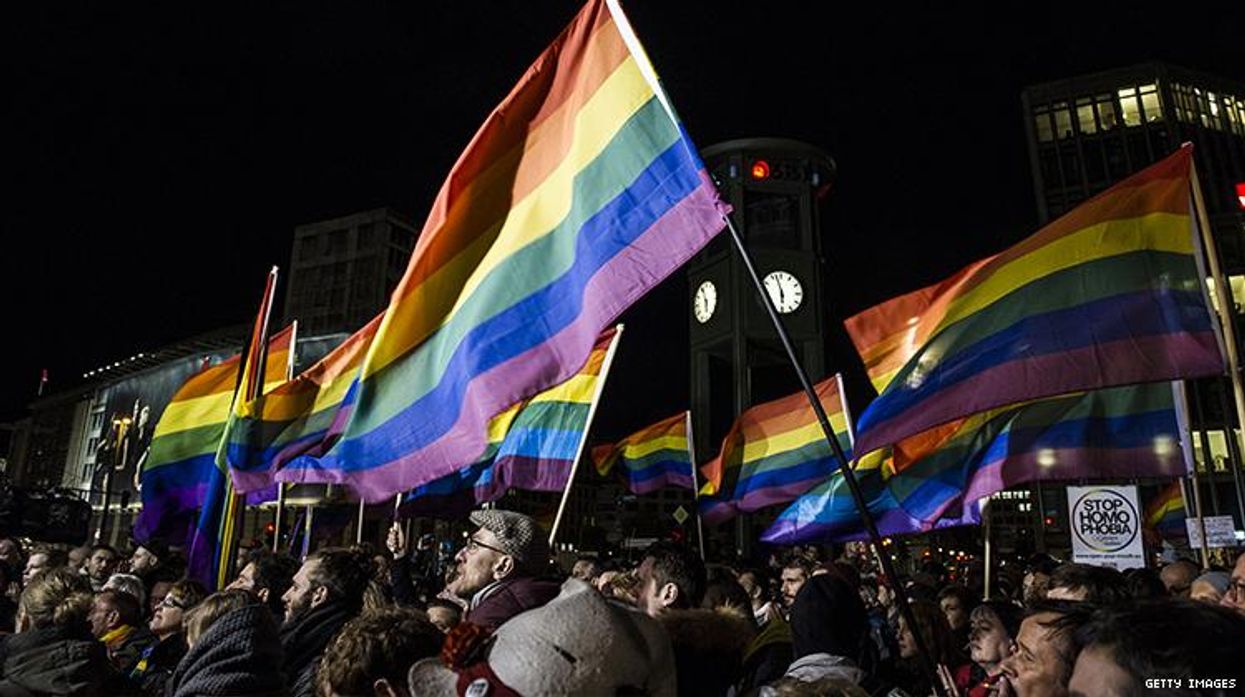Transgender
Russian Trans Woman's Conviction for Sharing Erotica Overturned

The woman, who was likely to face extreme violence in a men's prison, has been released but will be retried.
Updated
May 31 2023 6:36 PM ESTtrudestress
By continuing to use our site, you agree to our Privacy Policy and Terms of Use.

The woman, who was likely to face extreme violence in a men's prison, has been released but will be retried.
UPDATE, January 23: The conviction of the transgender Russian woman, known as Michelle, has been overturned, and she has been released, CBS News reports. However, she will likely face similar charges in a retrial ordered by the court that vacated her conviction. A different judge will hold the retrial.
"The verdict has been canceled as unfair; the case was sent for a retrial," said lawyer Maksim Olenichev, a member of her defense team. The outspokenness of Russian LGBTQ activists helped free her, he said.
A Russian transgender woman has been sentenced to three years in prison on what activists say are "bogus" child pornography charges -- and since she'll be incarcerated in a men's penal colony, she's likely to face extreme violence, even death.
The 53-year-old woman, identified only as Michelle, was convicted in late November on charges of "distribution of pornography depicting minors," Human Rights Watch reports. The charges arose because she had shared hentai, which HRW describes as "sexually charged drawings featuring naked characters from Japanese cartoons," on social media in 2013 and 2014. Police told her in the summer of 2018 that she was under investigation.
A supposedly expert witness called in by law enforcement determined that the drawings depicted children under 14 years old, CBS News reports. Activists and friends of Michelle's called that conclusion ridiculous.
"They are cartoon characters -- how can one really establish how old they are?" trans blogger Lada Preobrazhenskaya, who has been assisting Michelle during the legal proceedings, told CBS.
Michelle has been on hormone therapy for her gender transition, but she is still considered male under Russian law, she will serve her sentence in a men's penal colony. That could turn a three-year sentence into a death sentence, Preobrazhenskaya said, as "she will be either killed or heavily beaten there."
Michelle had a court-appointed public defender during her trial, as she and her wife thought that raising money to hire a private lawyer would bring too much publicity to the case. The public defender convinced her to plead guilty in order to get the trial over with quickly. Now Preobrazhenskaya has raised funds to hire another lawyer for an appeal of Michelle's conviction and sentence.
Michelle remains in detention in her hometown of Bryansk, about 200 miles from Moscow, until the appeal hearing, which has yet to be scheduled. She lost her job as an epidemiologist due to the criminal case, and on top of all that, she is a survivor of bladder cancer.
Not only is she likely to face violence in the penal colony, she will lose access to her hormone treatment there, Maria Chaschilova, a lawyer with the Moscow LGBT Community Center, told the Russian newspaper Novaya Gazeta. Withdrawal from hormones can cause serious side effects, such as depression and suicidality.
"So long as this case persists Michelle's rights to health, identity, expression, liberty, and even to life hang in the balance," HRW concludes.
Charlie Kirk DID say stoning gay people was the 'perfect law' — and these other heinous quotes